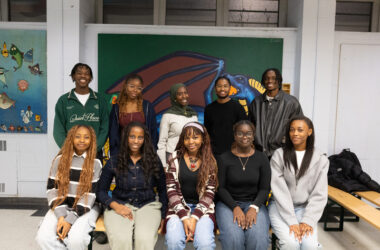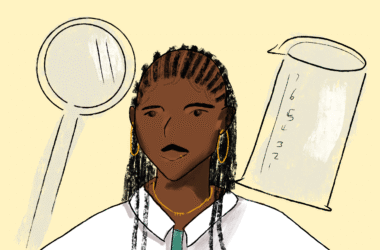Have you ever wondered why you were encouraged to eat your greens as a child? Not only are they packed with healthy nutrients, but some of these cruciferous vegetables are also home to a chemical compound called isothiocyanates (ITCs)—phytochemicals. These are shown to play a role in preventing cancer, cardiovascular[Read More…]
Science & Technology
The latest in science and technology.
Inside McGill’s chapter of The National Society of Black Engineers
For many Black engineering students at McGill, finding community can be just as important as academic success. The McGill chapter of the National Society of Black Engineers (NSBE) aims to provide that support through camaraderie, mentorship, and leadership. One of the students helping lead these efforts is Fatima Janneh, a[Read More…]
How systemic barriers hinder the integration of African immigrants in Quebec’s labour market
Immigrants contribute significantly to Canada’s socioeconomic growth in undeniable ways, yet many of them are excluded from job opportunities for reasons unrelated to their qualifications. A complex interplay of racial discrimination, social isolation, and systemic inequalities shapes the experiences of Highly Skilled African Immigrants (HSAIs) joining the workforce. This raises[Read More…]
Professor Myrna Lashley sheds light on the importance of studying Black Canadian youth’s mental health
Black Canadians, on average, experience disproportionately poor health outcomes throughout their lives. While genetics may contribute to many chronic illnesses and mental health challenges, social and environmental determinants such as limited access to health care and anti-Black racism drive much of this disparity. This discrepancy is compounded by the legacy[Read More…]
Take the Tribune’s Science and Technology quiz
In 1989, Alan Emtage, a graduate and system administrator at McGill, created the first Internet search engine, which present-day search engines still rely on. What did he call his search engine? a) WebCrawlerb) Yahooc) Archied) ChatGPT As of Fall 2025, which faculty had the largest number of students enrolled? a)[Read More…]
The link between mental health and breathlessness
Have you ever trudged through the snow up rue University, about to write a final exam that will make or break your grade? By the time you reach the top of that hill, you might be feeling more out of breath than usual. A recent study involving Dennis Jensen, a[Read More…]
Goat and sheep milk allergies point to underlying cow’s milk allergy…Most of the time
Despite the meteoric rise of plant-based milk’s popularity over the past few years, cow’s milk continues to dominate the global milk market. It is an excellent source of vital minerals, vitamins, and proteins, and is often recommended for young children—that is, assuming they are not allergic. Even with all of[Read More…]
Yes, your city moves differently on special event days
As major cities develop increasing dependence on shared micromobility—namely, e-scooters and e-bikes—urban planners face the challenge of understanding the fluctuating demand for these modes of transport. While daily travel patterns remain relatively predictable, special events such as festivals, parades, and protests regularly disrupt urban mobility. These events can attract large[Read More…]
Plurilingual Lab restarts Grad Talk series with a discussion on multilingual classrooms
McGill’s Plurilingual Lab resumed its Grad Talks series on Jan. 15 as part of an initiative to highlight graduate students’ research on language education while also allowing them to receive constructive feedback from other researchers. The first talk of the year was led by Tiffany Tam, a University of Toronto[Read More…]
Meet your prof: Nikolas Provatas
Despite being friends with several physics majors, when discussions of gravity and inertia inevitably shift into abstract theory, I can’t help but wonder, what is physics all about, anyway? If you’re studying science or engineering here at McGill—or just interested in the mysterious inner workings of physics overall—there’s a pretty[Read More…]















